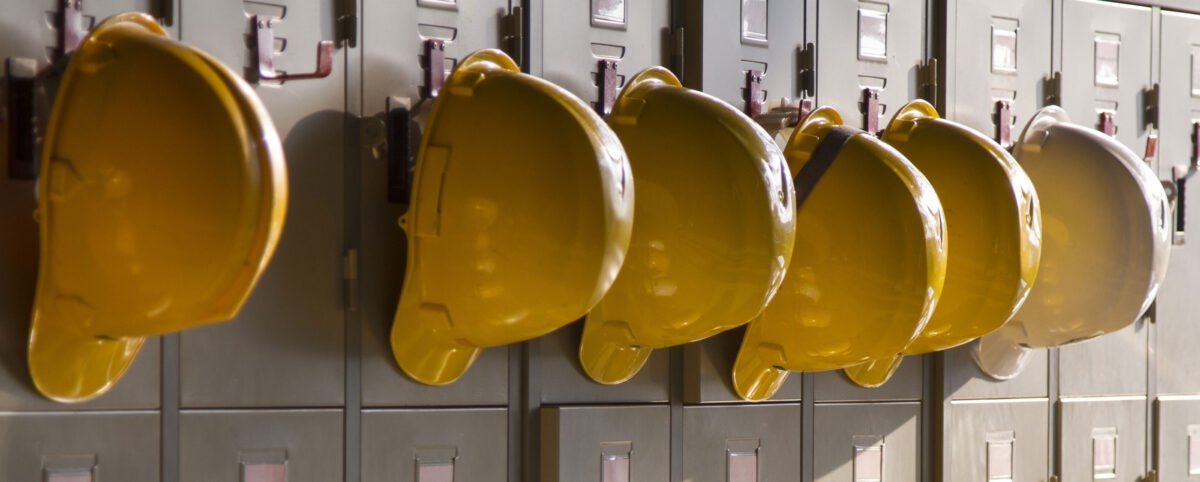It’s as tough of a job as it is an important one – each year the National Safety Council tries to make a dent in the collective consciousness of America by celebrating “Safety Awareness Week.”
Because safety is often forgotten until we wish we remembered it, we should applaud this effort and practice a constant focus on safety in all aspects of daily living.
Consider the following top 10 list of ways you can help protect you, your family and others.
- Put the phone down: Does it seem like a good idea to be watching funny Facebook videos while driving 65 mph down the highway? No? Then you probably shouldn’t do it – it may even keep you from becoming a hood ornament. Call us old fashioned, but we even like to go up and down the stairs or cross the street while keeping our eyes looking at where our feet are taking us.
- Get noticed: Wear a high-visibility garment or article of bright color when you’ll be in close proximity of moving vehicles or machinery. This means you, pedestrians, joggers, dog walkers, or parents pushing strollers. Make it difficult for motorists to NOT see you. At least give your family estate attorney the leverage to say, “How could you not see them? They were wearing an outrageously bright safety vest!”
- Watch your step: The “slip & fall” accident category is the number-one cause of insurance claims around the world. Walking and using stairs properly are not automatic – concentrate while on the attic stairs, front stoop, driveway, and sidewalk.
- Sleight of hand: We work with our hands, so it’s no surprise hand and finger injuries are so common both on and off the job site. Safety authorities have issued rules for workers to use proper gloves, but the average Joe is not included in these requirements. Be aware of where you stick your hands and make sure the kids don’t play with doors or objects such as hinges, linkages, bicycle chains, etc. Even seemingly mundane acts can be dangerous. An ER doctor in San Diego wrote a book about safety – his worst hand offense was putting stuff in the dishwasher. Take no act for granted when it comes to safety.
- The eyes have it: Another common avoidable incident is eye and face injuries from foreign objects, such as hammering a nail, etc. Even a pair of reading glasses or sunglasses are helpful should a stick come flying at your face while mowing the lawn. A pair of impact-resistant, safety-rated, wraparound glasses – costing about $3 – can save you a lot of misery. It’s a small investment to not ruin your eyesight. Avoid the overuse of tinted lenses in low light conditions.
- Drive defensively: You can’t control what other people are doing in their vehicles, but you can make sure you’re paying attention to their poor driving. Use seat belts. Don’t be distracted. Leave at least four seconds of distance between you and the car in front of you. Use extra caution on two-lane, undivided highways – they’re at the top of the car crash food chain. Pay attention at intersections, not assuming that Mr. or Mrs. Jones is going to actually stop at that stop sign.
- DIY FYIs: “Do it yourself” efforts can potentially save you money, but they can also cost you your health and a trip to the emergency room. Whether we’re talking about projects in the yard or home, pay someone to do it if you don’t have the knowledge or skillset. You’ll feel better about spending money for a job well done than you will for a medical bill after a job went wrong.
- The calm after the storm: When storms hit, call the authorities rather than breaking out the chainsaw and trying to take care of it on your own. Trees down, electric lines, flooding, and other storm damages require homeowners to tread carefully and cautiously. Here’s a time to pick UP the phone rather than being a hero.
- OSHA Focus Four: The safety experts at Occupational Safety and Health Administration worked overtime to identify the top four fatal incidents: falls from heights; electrocution; struck by (practically anything); and caught in or between. The first two are fairly self-explanatory, while the second two are broader. Think of hazards in your driveway, highway work zones, mechanical pinch points, and using long-handled tools in low-clearance areas.
- Take a dip in safety: Precaution and common sense can make the difference between life and death around pools and bodies of water. The list includes proper supervision of children; avoiding alcohol; ensure life jackets are on watercraft; avoid being on or near water at night; make sure electrical appliances have a ground-fault circuit interrupter (GFCI); and locking gates and fences around pools.
After a top 10 list of safety concerns, it may seem like life is too dangerous to enjoy safely. This is untrue, of course. All you have to do is pay attention to potential risks, starting from the moment your feet hit the floor beside the bed.
Have a great Safety Week as an introduction to a Safe Summer!

